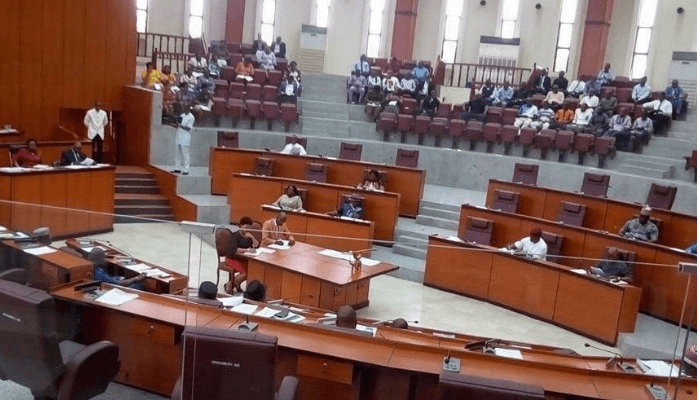The passage of different bills into law may enter the storybook of Akwa Ibom House of Assembly as a major achievement.
Yet, inability by either the governor or the lawmakers to turn the bills into law poses a big drawback to such chest-thumping efforts of the lawmakers.
This is the quandary that the 26-member Akwa Ibom House of Assembly led by Rt. Hon. Aniekan Bassey (Uruan), as the Speaker is finding itself.
Few weeks ago, Civil Liberties Organisation, Akwa Ibom State Branch, accused Governor Udom Emmanuel of withholding assent to six people-oriented bills.
These include Bill for a Law to Prohibit Stigmatization and Discrimination against People Living with HIV/AIDS and to Regulate the Practice of HIV/AIDS Counselling and Testing and for other Matters Connected Therewith, and Bill for a Law to Establish Akwa Ibom State Health Insurance Agency and for other Matters Connected Thereto,
Others are Akwa Ibom State College of Science and Technology Bill; Customary Courts Bill and Akwa Ibom Youth Development Fund Bill (AKYDF).
Eventually, CLO called on the 7th House of Assembly to override the governor’s veto for the bills to become law and for the public to benefit from such.
Though the House has not hearkened to the timely call, we at Straightnews strongly align ourselves with CLO’s stance by calling on the House to invoke section 100(5) of the Constitution of the Federal Republic of Nigeria, 1999 (as amended) and pass into law bills earlier passed by House and forwarded to the Governor but have not been assented to within the constitutionally permissible 30 days.
Section 100(5) of the law states ”Where the Governor withholds assent and the bill is again passed by the House of Assembly by two-thirds majority, the bill shall become law and the assent of the Governor shall not be required.’’
A popular Akwa Ibom proverb says ‘if a child does not know the road, can’t the father show him the way?’ Since the House members laboured strenuously for months to bring the bills to birth, the bills which the governor has refused assent, why can’t the house turn such labour into fruition.
It appears the governor is not be on the side of the masses, and that is why he has not assessed and resubmitted them to the House for amendments and passage into law again. But he has consigned them in the cooler.
On the other hand, the House members appear not to know their privileged position as occupiers of the second arm of government. Why must the house populated by representatives from different state constituencies be sitting and anxiously waiting for the governor’s body language to knowing what to do or be told how to go about their sacred duty to the electorate?
Since the governor has not signaled the hierarchy of the House, the members must wait for the governor. Perhaps, the fear among members is that if the laws are passed into law, this may upstage the apple cart of their relationship with the governor and by implication dry up their sources of favours hence the Honourables remain tongue-tied to avoid incurring the wrath of their ‘paymaster.’
Let it be made clear that delay in overriding the bills will portray the House as a rubber-stamped entity, and a body that does not believe in separation of powers doctrine, which is the salt of every democratic arrangement.
In addition to overriding, the House must synergise with the executive arm and set machinery in motion for enforcement of the bills.
Overriding the hanging bills by the House members will be seen as a heroic deed and would earn them deep respect. Let the House utilise this auspicious moment by leaving its footprints in the sands of time for posterity so that the House is not vilified for such unpardonable inertia.

